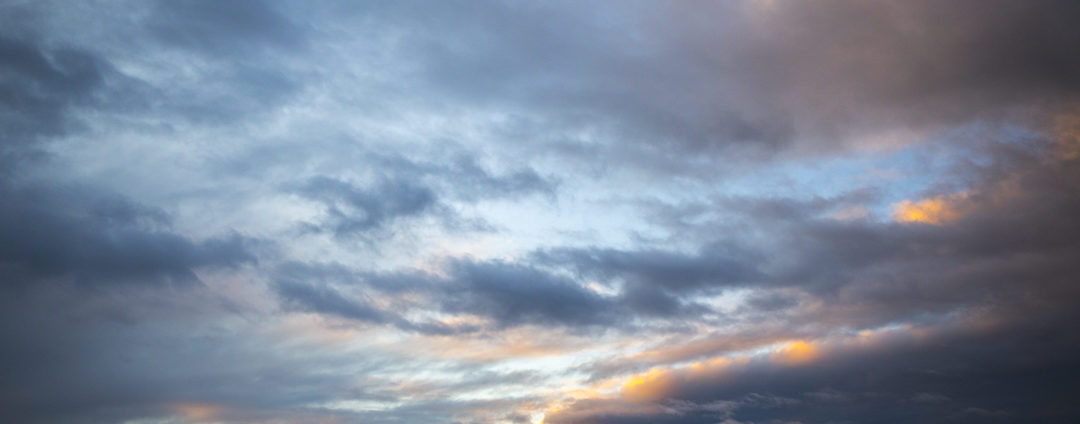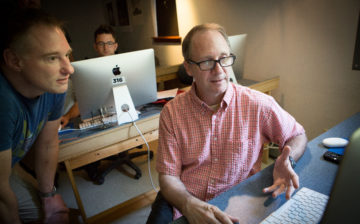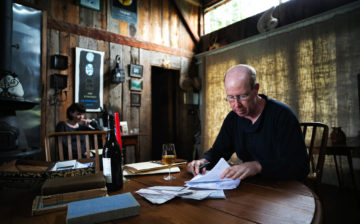Workshops
Be guided by pros as you explore the art and craft of making a documentary
Dates: TBD
Levels: Beginner, Intermediate
Class Size: 14 (max)
For 2021 Dates: View 4-Week Nonfiction Cinematography Series
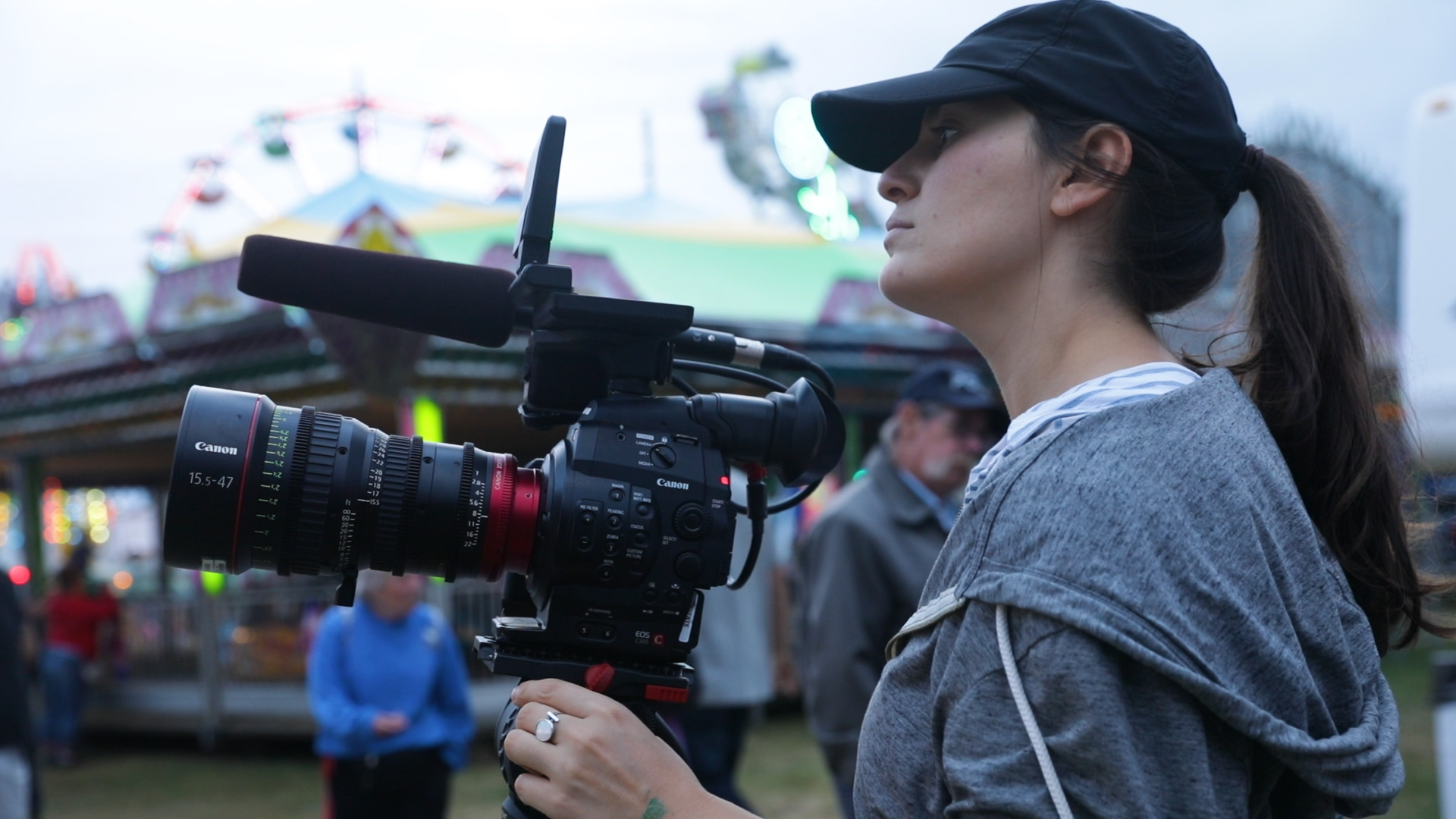 Image Credit: Peter Logue
Image Credit: Peter Logue
It’s a golden age for the documentary. Streaming, broadcast, web, and theatrical outlets have expanded opportunities for distribution.
This four week intensive introduces students to the dynamics of making short and long form documentaries. Guided by professionals, you will explore development, research, structure, production, interviewing, camera work, distribution and much more.
The Courses (2020)
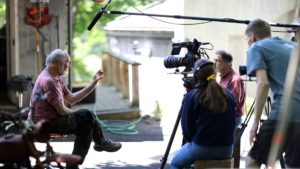
Making the Documentary: A Real World Guide | Heather Winters
In the first week, students explore all aspects of beginning, shaping and making a documentary. You’ll examine documentary genres and styles as you consider where your idea best lives. Learn how documentaries are written, beginning with a simple one-sentence logline that captures your idea, then crafting a brief synopsis to help shape and clarify your story and subject. We will screen clips and trailers from some of the most compelling and intriguing documentaries of our time, analyzing their subjects and storylines to stimulate discussion about how to focus and structure a story. You’ll get a real world view on the basics of development, pitching, producing, directing, budgeting, and identifying potential funding resources. We’ll also look at distribution opportunities for your project in order to tease out what makes your project special. An award-winning director and two-time Sundance-winning executive producer will guide you throughout the week. The class concludes with your own in-class pitch.
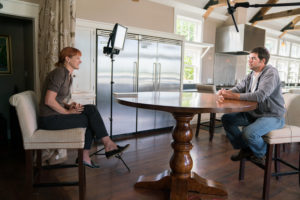
Interviewing for the Documentary | Mimi Edmunds
The interview is the foundation for most documentaries. Acclaimed feature documentaries like The Fog of War, Finding Vivian Maier, and Citizenfour, as well as shows like 60 Minutes and Frontline are all examples of the power of interviews in helping to build a compelling narrative. In week 2, we will go deep into the interview process. Designing and asking the right questions, conducting the “pre-interview”, “casting” your main character(s), and determining an interview subject’s viability to be front-and-center or whether the person should be included at all, will all be covered. The interview is your most important tool in developing the heart of your documentary. Each student will conduct one lengthy interview, choose the on-camera portions, and learn how to pull the story out of it. Your entire interview will be filmed for critique and discussion. You will leave the week with a thorough understanding of the process and art of the interview.
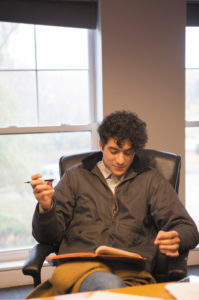
Non-Fiction Film: Story Craft | Dana Rae Warren
Week 3 will be an intensive look into the Craft of documentary, with an Award-winning filmmaker. The path to shooting and editing better documentary stories is often rooted in coming to a deeper, AND concrete, understanding of The Craft. This is an intensive case study-based class that will delve into specific shooting and editing choices, and how they arise out of fundamental questions we must ask ourselves all day, every day. From choices over character and structure, to what shot we take and what edit we make, all derive from a specific knowledge of The Craft and how it can guide us. This is essential if you’re going to be able to successfully shape the footage in the edit room. This class is about concrete tools for finding the story in front of us, the story inside of us, and the synergy between them. Thriving discussion is encouraged, facilitated, and woven throughout the course experience. Students bring their in-progress project ideas, which will be woven into the class to be workshopped as a case study.
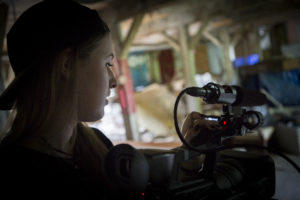
Documentary Camera | David Wright
The final week of the intensive will be focused on putting your new found skills into practice, as well as delving deep into cinematography and the camera. Guided by an award-winning cinematographer, you will gain an understanding of how photography and cinematography tools and skills are adapted to address the unique demand of non-fiction filmmaking. Following lectures and exercises where we explore the technical and creative role that the camera plays in documentary production, students work in groups to find and shoot a short documentary, all while gaining practical experience handling the camera in a variety of situations. Projects will be edited and critiqued in their various stages. Completed films will screen at the Final Friday showcase of student work, following the weekly lobster dinner. Friends and Family are invited to attend!

